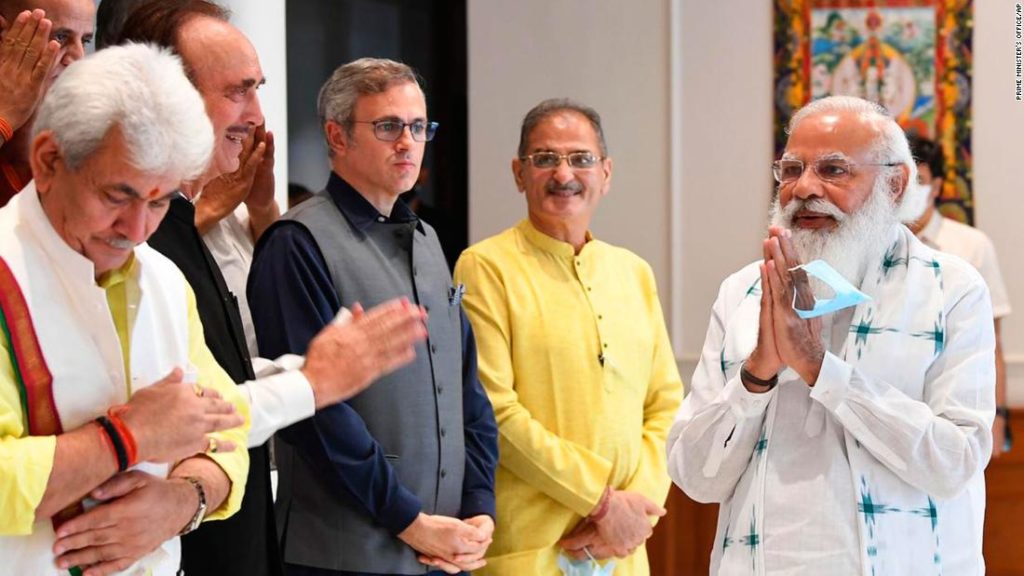Kashmiri leaders have long demanded a restoration of their semi-autonomy and for elections to be held, but India has been working to readjust some assembly and parliamentary constituencies there under a process known as “delimitation.”
Modi later took to Twitter to reiterate the line he had taken in the roughly three-hour talks in New Delhi.
“Delimitation has to happen at a quick pace so that polls can happen and J&K gets an elected government that gives strength to J&K’s development trajectory,” he said.
Regional leaders said they pressed their demand for restoration of statehood and limited autonomy at the talks.
“We told PM that we don’t stand with what was done on 5th Aug 2019,” said Omar Abdullah, leader of the regional party National Conference. “We’re not ready to accept it, but we won’t take law into hands, we will fight this in court.
Jammu and Kashmir is claimed in full by both India and its neighbor Pakistan, although each control only parts of it.
The Indian government said the changes made in 2019 were needed to spur development in a region where an armed insurgency has raged for decades against New Delhi’s rule.
Protests and lockdowns
The shock decision to revoke the region’s statehood and semi-autonomy triggered protests by thousands of people and was criticized by local leaders who said they were never consulted.
“I spoke about the pain and anger and frustration among the people of Jammu and Kashmir since August 2019, about how they feel humiliated,” said Mehbooba Mufti, leader of the regional People’s Democratic Party. “I said people of J&K are facing a lot of problems … even if they breathe loudly they are jailed.”
Many people in Kashmir have voiced criticism of “delimitation,” fearing it is aimed at tilting the balance of power in the region toward Hindu leaders.
Nisar Ahmad, a university student in Kashmir’s main city of Srinagar, said he didn’t have high hopes from Wednesday’s meeting.
“They are not going to reverse what they did,” Ahmad said.
You may also like
-
Afghanistan: Civilian casualties hit record high amid US withdrawal, UN says
-
How Taiwan is trying to defend against a cyber ‘World War III’
-
Pandemic travel news this week: Quarantine escapes and airplane disguises
-
Why would anyone trust Brexit Britain again?
-
Black fungus: A second crisis is killing survivors of India’s worst Covid wave

